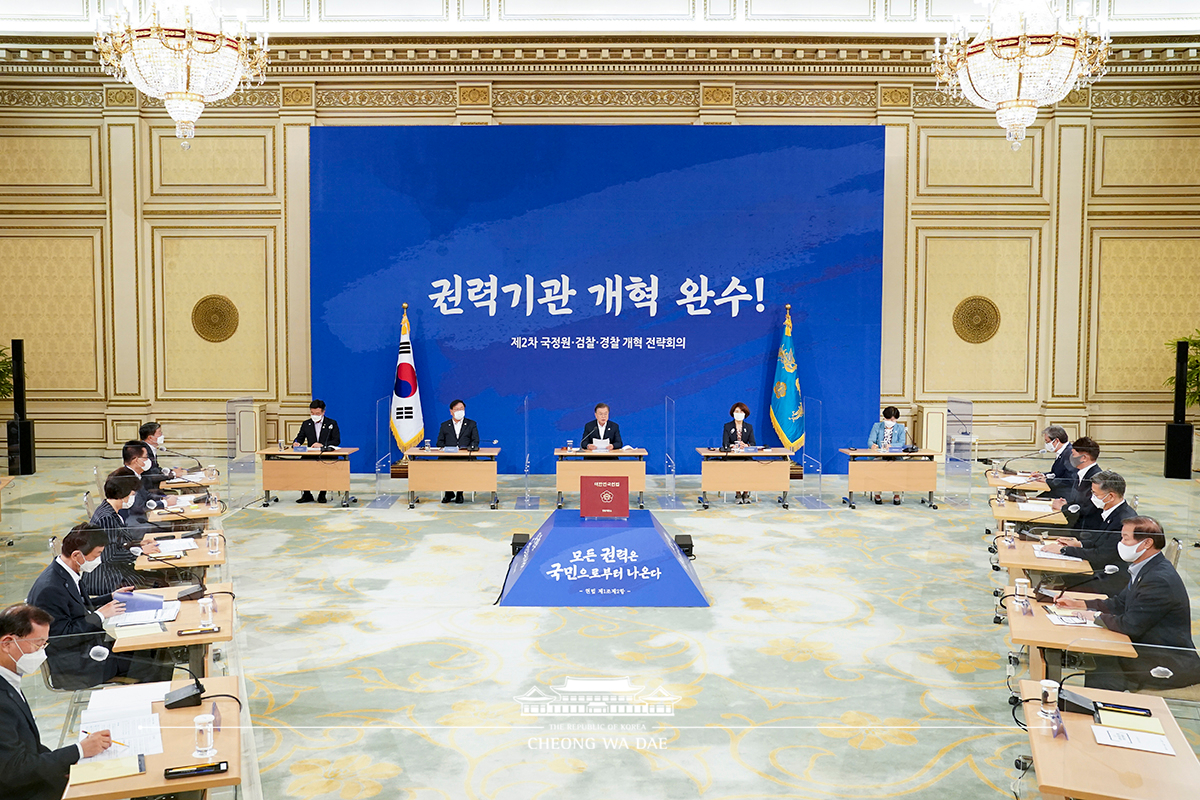deep dive: Minjoo’s prosecutor reform
The Minjoo Party is pushing through its prosecutor reform bill, which is going to be the rousing finale of the Moon administration.
So it has to be the prosecutor reform into which I’ll take a deep dive this week. I tried the BBC explainer style with more colloquial questions.
As always, let me know what you think and don’t hesitate to write me any questions!
—Subin
What’s the point of the reform?
The purpose is to divide the authorities of prosecution and investigation. In South Korea, the prosecutors had both authorities for a long time, and some argue this allowed the prosecutors to grow into the most powerful institution in the country.
So the point is to deprive the authority to investigate a case from the prosecutors and let the prosecutors file an indictment and carry on as the prosecution in the court. Police or other institutions will do the investigation.
Is this something new? I think I’ve heard of the reform for years
You’re right. In fact, this is the most twisted part of the story.
From the beginning of the Moon administration, the prosecutor reform was the chief mantra of the administration. As early as January 2018, Cho Kuk, then the senior Blue House legal aide, announced its blueprint of the reform.
There is, however, one big difference between the blueprint and what Minjoo is now pushing through.
The original reform was to strip the prosecutors of their investigation authorities in cases other than the special investigation—namely the big six: corruption, financial crime, public official’s crime, election crime, defense industry crime, and man-made disaster. This was finalized last year.
Now Minjoo is seeking to take away the Prosecutors’ authority to investigate these crimes. Which is why it is often called the complete deprivation of the Prosecutors’ investigation authority (검수완박, short for 검찰 수사권 완전 박탈).
So, why now?
In a nutshell, because they lost the presidential election!
Okay, you don’t have to take my words for it. Let’s listen to what the former Minjoo lawmaker (now independent) and former prosecutor Keum Tae-seop says:
“The Minjoo Party administration exploited the Prosecutors to the maximum (specifically special investigation) when it could as it came to power, but now it seeks to revoke their authority as they don’t do as they were told and lost the election. It doesn’t make any sense and is a shameless behavior.”
Keum’s Facebook post, April 12
Another independent, former Minjoo lawmaker Yang Hyang-ja revealed an interesting story:
“The hardliners [in the Minjoo Party] were so stubborn. One lawmaker said[they] will die [if they don’t do this]. Another said that twenty former Moon Blue House officials might go to jail if they fail in the reform.”
(For the context, Yang is a member of the Assembly legislation committee, and Minjoo needs her support to fast-track the reform bill. Yang has announced her opposition in public.)
What’s the latest situation?
Minjoo is so desperate to fast-track the bill that it expelled one of its lawmakers as a tactical gambit.
For a bill to bypass the mediation subcommittee of an Assembly committee, the majority of the subcommittee has to agree. The subcommittee consists of three members from the ruling party and another three from other parties and independents.
So it needs four to bypass the mediation.
The subcommittee currently has three Minjoo members, two PPP members, and one independent. Minjoo tried to persuade Yang to agree to the bypass, but she refused.
Minjoo then expelled its committee member Min Hyung-bae. He’s now independent so that he can be appointed as a member of the mediation subcommittee.
Any concerns about side effects?
There are many.
First of all, there is no investigation agency with the expertise required to investigate the big six crimes. If the bill passes, there will be a vacuum in investigations for quite a while.
Minjoo knows it too well. Its front runner in the reform Hwang Un-ha said in his letter to fellow Minjoo lawmakers, part of which was revealed by some newspapers, “the authority to investigate the big six crimes doesn’t go somewhere else [to the police, for example] but it just evaporates.”
“The already overworking police couldn’t take over all the investigative authorities. As a result, the total amount of investigation cases will decrease.”
Hwang is a former police high official and is currently under investigation on suspicion of taking part in the alleged Ulsan mayor election meddling.
Plus, the bill leaves no safety mechanism against possible abuse of power by the police. The prosecutors have been able to request the police to supplement an investigation when they see its investigation wanting.
The recent case of suspected insurance killer Lee Eun-hae is one example in which the prosecutor’s request to supplement the investigation made a breakthrough.
Will they succeed?
It depends on how you define success.
If you mean to pass the bill and get the President to sign it, they will soon succeed. There are few roadblocks in their way.
But will the investigation authority evaporate, and suspects like Hwang can simply walk away? Hardly.
What Minjoo lawmakers are missing is that in the Sixth Republic of Korea, the almighty President can do whatever they want, especially in their early term. What on earth does make them believe the police wouldn’t act like their archenemy, the prosecutors, when they get unchecked power?
